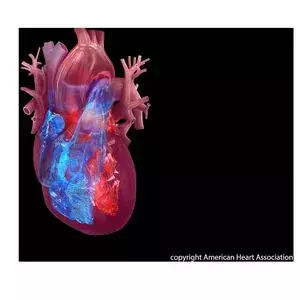- Home
- Medical news & Guidelines
- Anesthesiology
- Cardiology and CTVS
- Critical Care
- Dentistry
- Dermatology
- Diabetes and Endocrinology
- ENT
- Gastroenterology
- Medicine
- Nephrology
- Neurology
- Obstretics-Gynaecology
- Oncology
- Ophthalmology
- Orthopaedics
- Pediatrics-Neonatology
- Psychiatry
- Pulmonology
- Radiology
- Surgery
- Urology
- Laboratory Medicine
- Diet
- Nursing
- Paramedical
- Physiotherapy
- Health news
- Fact Check
- Bone Health Fact Check
- Brain Health Fact Check
- Cancer Related Fact Check
- Child Care Fact Check
- Dental and oral health fact check
- Diabetes and metabolic health fact check
- Diet and Nutrition Fact Check
- Eye and ENT Care Fact Check
- Fitness fact check
- Gut health fact check
- Heart health fact check
- Kidney health fact check
- Medical education fact check
- Men's health fact check
- Respiratory fact check
- Skin and hair care fact check
- Vaccine and Immunization fact check
- Women's health fact check
- AYUSH
- State News
- Andaman and Nicobar Islands
- Andhra Pradesh
- Arunachal Pradesh
- Assam
- Bihar
- Chandigarh
- Chattisgarh
- Dadra and Nagar Haveli
- Daman and Diu
- Delhi
- Goa
- Gujarat
- Haryana
- Himachal Pradesh
- Jammu & Kashmir
- Jharkhand
- Karnataka
- Kerala
- Ladakh
- Lakshadweep
- Madhya Pradesh
- Maharashtra
- Manipur
- Meghalaya
- Mizoram
- Nagaland
- Odisha
- Puducherry
- Punjab
- Rajasthan
- Sikkim
- Tamil Nadu
- Telangana
- Tripura
- Uttar Pradesh
- Uttrakhand
- West Bengal
- Medical Education
- Industry
Early cardiac amyloidosis remains serious problem, treat even asymptomatic patients: JACC

Early Cardiac Amyloidosis Still Bad, treat even asymptomatic patients
EUROPE: A longitudinal cohort study published in JACC CardioOncology identified that clinical heart failure or other cardiovascular complications can develop in asymptomatic patients with early-stage transthyretin amyloid cardiomyopathy (ATTR-CM) as quickly as in a few years. The research also showed that early treatment is linked to improved survival.
"ATTR-CM, a cardiomyopathy that worsens with time, is becoming a more widely recognized cause of heart failure as a result of improvements in noninvasive imaging methods. The good news is that although many people cannot obtain it, treatment is available," asserted Esther Gonzalez-Lopez, MD, PhD, of Hospital Universitario Puerta de Hierro in Madrid, and colleagues.
The number of patients diagnosed in the early stages has increased due to advances in detection and treatment, but there are few prognostic statistics available for people who don't show HF symptoms. Furthermore, it is unclear if early transthyretin (TTR) stabilizer initiation benefits asymptomatic patients.
This study's objective was to outline ATTR-natural CM's course and prognosis in patients without signs of HF.
Retrospective data from 6 international amyloidosis centers on the clinical features and outcomes of individuals with ATTR-CM without HF symptoms was gathered for this aim. There were 118 patients in total (78.8% men, median age 66 years [IQR: 53.8-75 years], 68 with variant transthyretin amyloidosis, mean left ventricular ejection fraction 60.5% 9.9%, mean left ventricular wall thickness 15.4 3.1 mm, and 53 [45%] treated with TTR stabilizers at baseline or during follow-up).
Major highlights of the research:
- 38 patients (23 New York Heart Association functional class II and 14 functional class III or IV) developed HF symptoms during a median follow-up period of 3.7 years (IQR: 1-6 years), 32 patients passed away, and 2 required heart transplantation.
- 20 patients received pacemakers; 13 of them experienced AF, and one suffered a stroke.
- At 1, 3, and 5 years, the overall survival rates were 96.5% (95% CI: 91%-99%), 90.4% (95% CI: 82%-95%), and 82% (95% CI: 71%-89%), respectively.
- After adjusting for sex, age, ATTR-CM type, and estimated glomerular filtration rate (HR: 0.18; 95% CI: 0.06-0.55; P = 0.002), treatment with TTR stabilizers was still linked to enhanced survival (HR: 0.31; 95% CI: 0.12-0.82; P = 0.019).
The authors concluded that after a median follow-up of 3.7 years, over one-third of patients with ATTR-CM who did not have HF symptoms at the time of their initial evaluation developed HF. TTR stabilizer treatment was linked to a reduced risk of developing clinical HF and an improved prognosis.
"Although more research is required to determine the best therapeutic strategy for patients with asymptomatic ATTR-CM, our findings support the idea that stabilizing medications should be started at an early stage of the illness," they claimed.
REFERENCE
Gonzalez-Lopez E, Escobar-Lopez L, Obici L, et al. Prognosis of Transthyretin Cardiac Amyloidosis Without Heart Failure Symptoms. J Am Coll Cardiol CardioOnc. 2022 Nov, 4 (4) 442–454. https://doi.org/10.1016/j.jaccao.2022.07.007
Dr Kamal Kant Kohli-MBBS, DTCD- a chest specialist with more than 30 years of practice and a flair for writing clinical articles, Dr Kamal Kant Kohli joined Medical Dialogues as a Chief Editor of Medical News. Besides writing articles, as an editor, he proofreads and verifies all the medical content published on Medical Dialogues including those coming from journals, studies,medical conferences,guidelines etc. Email: drkohli@medicaldialogues.in. Contact no. 011-43720751


